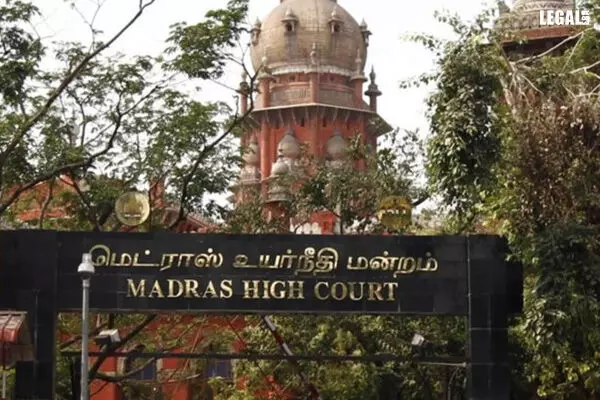- Home
- News
- Articles+
- Aerospace
- Artificial Intelligence
- Agriculture
- Alternate Dispute Resolution
- Arbitration & Mediation
- Banking and Finance
- Bankruptcy
- Book Review
- Bribery & Corruption
- Commercial Litigation
- Competition Law
- Conference Reports
- Consumer Products
- Contract
- Corporate Governance
- Corporate Law
- Covid-19
- Cryptocurrency
- Cybersecurity
- Data Protection
- Defence
- Digital Economy
- E-commerce
- Employment Law
- Energy and Natural Resources
- Entertainment and Sports Law
- Environmental Law
- Environmental, Social, and Governance
- Foreign Direct Investment
- Food and Beverage
- Gaming
- Health Care
- IBC Diaries
- In Focus
- Inclusion & Diversity
- Insurance Law
- Intellectual Property
- International Law
- IP & Tech Era
- Know the Law
- Labour Laws
- Law & Policy and Regulation
- Litigation
- Litigation Funding
- Manufacturing
- Mergers & Acquisitions
- NFTs
- Privacy
- Private Equity
- Project Finance
- Real Estate
- Risk and Compliance
- Student Corner
- Take On Board
- Tax
- Technology Media and Telecom
- Tributes
- Viewpoint
- Zoom In
- Law Firms
- In-House
- Rankings
- E-Magazine
- Legal Era TV
- Events
- Middle East
- Africa
- News
- Articles
- Aerospace
- Artificial Intelligence
- Agriculture
- Alternate Dispute Resolution
- Arbitration & Mediation
- Banking and Finance
- Bankruptcy
- Book Review
- Bribery & Corruption
- Commercial Litigation
- Competition Law
- Conference Reports
- Consumer Products
- Contract
- Corporate Governance
- Corporate Law
- Covid-19
- Cryptocurrency
- Cybersecurity
- Data Protection
- Defence
- Digital Economy
- E-commerce
- Employment Law
- Energy and Natural Resources
- Entertainment and Sports Law
- Environmental Law
- Environmental, Social, and Governance
- Foreign Direct Investment
- Food and Beverage
- Gaming
- Health Care
- IBC Diaries
- In Focus
- Inclusion & Diversity
- Insurance Law
- Intellectual Property
- International Law
- IP & Tech Era
- Know the Law
- Labour Laws
- Law & Policy and Regulation
- Litigation
- Litigation Funding
- Manufacturing
- Mergers & Acquisitions
- NFTs
- Privacy
- Private Equity
- Project Finance
- Real Estate
- Risk and Compliance
- Student Corner
- Take On Board
- Tax
- Technology Media and Telecom
- Tributes
- Viewpoint
- Zoom In
- Law Firms
- In-House
- Rankings
- E-Magazine
- Legal Era TV
- Events
- Middle East
- Africa
Madras High Court Invalidates Assessment Order Due to Lower ITC Claimed Compared to GSTR 2A Return

Madras High Court Invalidates Assessment Order Due to Lower ITC Claimed Compared to GSTR 2A Return
The Madras High Court has invalidated the assessment order, ruling that the petitioner had claimed a lower amount of input tax credit (ITC) than what was indicated in the auto-populated GSTR 2A return. The court determined that the petitioner's erroneous claim of ITC suggested a lack of due diligence or oversight.
In the matter of interest liability for delayed return filing, Justice Senthilkumar Ramamoorthy noted that the evidence available indicates that the petitioner paid amounts of Rs.3,97,353 for both CGST and SGST on March 6, 2024.
The petitioner/assessee operates a business supplying bricks, blocks, tiles, and ceramic goods. Claiming to be uneducated and computer illiterate, the petitioner asserts their unawareness of the proceedings initiated by the issuance of an intimation dated January 19, 2023, leading to the challenged assessment order.
The petitioner argued that the assessing officer concluded that no further action was necessary. However, discrepancies arose regarding the input tax credit (ITC) claimed by the petitioner. While the petitioner claimed ITC of Rs. 54,000/- each for SGST and CGST in the GSTR 3B return, the auto-populated GSTR 2A return showed ITC availability of Rs. 3,23,967/- each towards SGST and CGST. This discrepancy suggests wrongful availing of eligible ITC, indicating a clear lack of due diligence.
Regarding the interest liability, payments totaling Rs. 3,97,353/- each towards SGST and CGST were remitted on March 6, 2024. In summary, a total of Rs. 10,86,310 was debited from the petitioner's bank account at Canara Bank to satisfy the demand under the assessment order.
The department argued that both the intimation and show cause notice were delivered to the petitioner via postal service and were not solely uploaded on the GST portal. Consequently, they contend that the principles of natural justice were adequately adhered to.
The court invalidated the assessment order, and the matter was remanded to the assessing officer for reconsideration. The petitioner was granted two weeks to respond to the show cause notice from the date of receiving a copy of this order. Following the petitioner's response, the assessing officer was instructed to give the petitioner a fair chance, including a personal hearing, before issuing a new assessment order within a specified timeframe. Additionally, since Rs.10,86,310/- was taken from the petitioner's Canara Bank account, the attachment notice for recovering the tax demand would be lifted, and the appropriated amount would be contingent upon the outcome of the re-evaluated proceedings.



